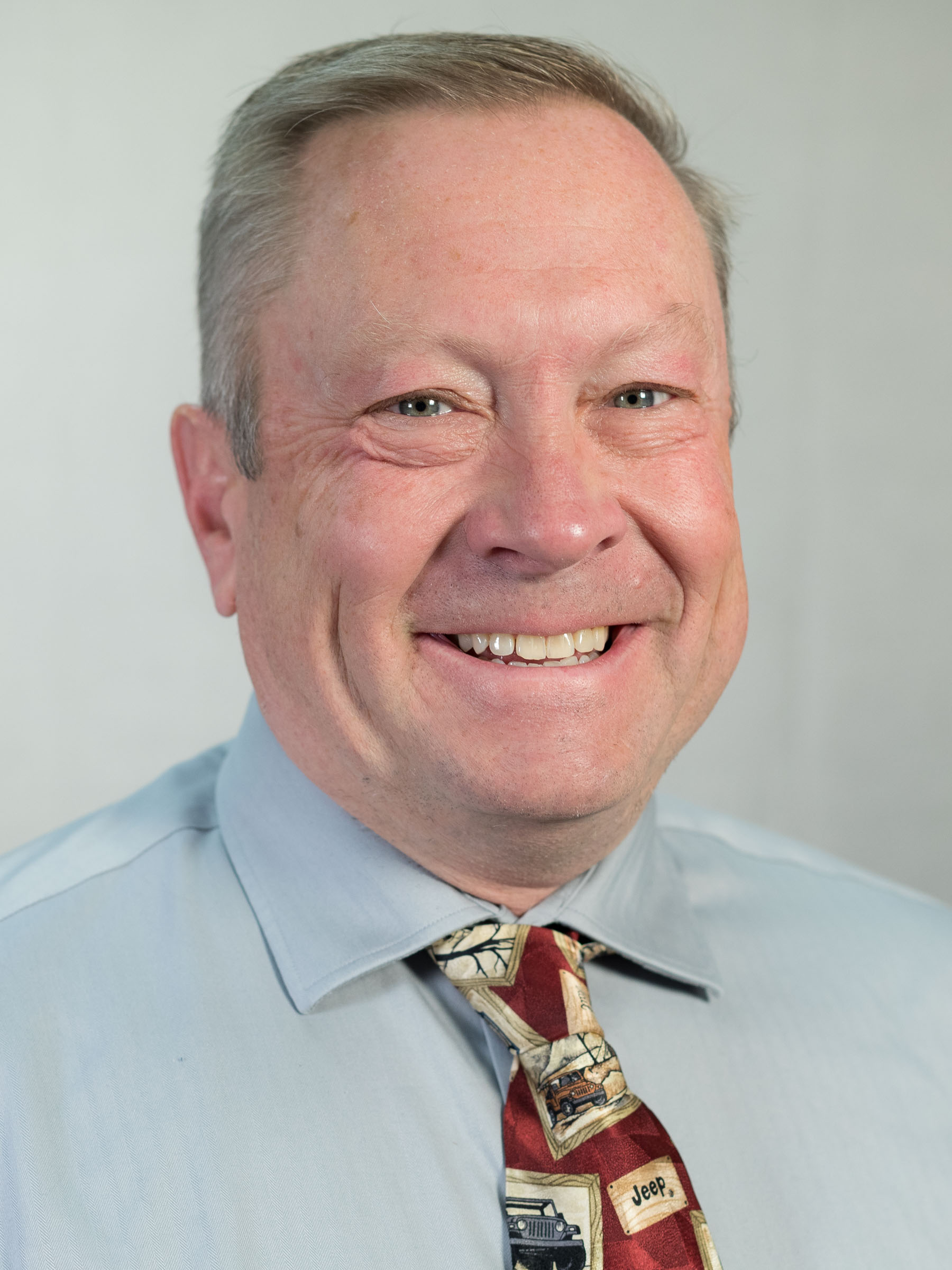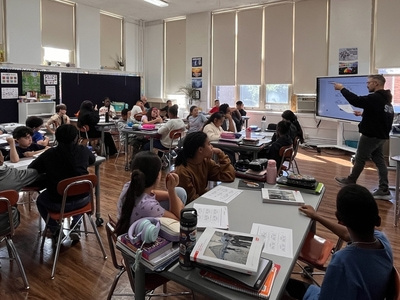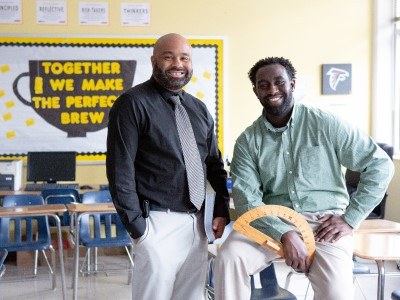Professional Learning
Student Success in a Fast-Evolving World at Loveland High School
Topics

Educators are the lead learners in schools. If they are to enable powerful, authentic, deep learning among their students, they need to live that kind of learning and professional culture themselves. When everyone is part of that experiential through-line, that’s when next generation learning thrives.
Loveland High School teachers and leaders know that traditional teacher-directed classes won’t engage students or set them up for success in this fast-evolving world.
At Loveland High School, teaching and learning is one-by-one.
“I think Loveland High School is as diverse as our community and wherever our students come in, it’s our job to meet their needs, their interests, their pathways,” said Principal Todd Ball.
On a warm fall day in early October, Loveland High School in Loveland, Colorado, hosted the second stop of Thompson School District’s “Seeing is Believing” tour to explore the ongoing transformation under the district’s push to personalize education to meet each student’s needs. A group of about 40 TSD principals, school officials from neighboring districts, TSD central office leaders, and representatives from a variety of district partners gathered to observe what Ball called “a day in the life.”
This year, 50 percent of the staff is expected to identify and implement at least one component of personalized learning. To jump-start the work at Loveland High School, said Ball, the school has embraced the notion of quick fixes. The school bought new furniture based on teacher requests for more intimate spaces to work with students in smaller groups. Some classrooms were re-configured to allow team teaching. And the school is bringing classrooms out of the building and delivering instruction directly to students at the Lago Vista Mobile Home Park.
The school’s sights are focused on the future. Tomorrow’s world will value critical thinking, problem-solving, collaboration, intellectual agility, adaptability, entrepreneurship, and effective communication (in every form). Technology is the primary driver behind revolutions at home and work. Loveland High School teachers and leaders know that traditional teacher-directed classes won’t engage students or set them up for success in this fast-evolving world.
In the AP Computer Science Principles course, students in small teams sit in a darkened room huddled around laptops. They study worldwide data from Google Trends, pursuing topics of their choosing. Students note how the thirst for information about The Colorado Rockies, for instance, rises and falls with the baseball season itself.
Out in the shop, students are applying math concepts through designing cityscapes. Students plan, measure, draw, and sketch. In the chemistry lab, games modeled after the board game “Battleship” help students grasp the contents of the periodic table.
In the AMPED (Algebra in Manufacturing Processes) class, teacher Kevin Kruglet meanders among groups of students developing business proposals. Each team of two or three students forms a virtual company. The teams analyze the costs and potential profits from producing customized products—keychains, hydro flasks, sunglasses, or magnets, for instance—emblazoned with Loveland High School’s logo, mascot, and colors. What is the target market? What’s the raw cost of the item? What is the potential retail price?
After all the teams pitch concepts to the entire class, a winning project will be selected. “The cool part is we’ll actually do it,” said Kruglet. In fact, the chosen project will be the focus of the work in the class for the rest of the year.
“An impression I’m walking away with overall is Loveland High School teachers do a really neat job of ensuring that the students are the readers, the writers, the listeners, the speakers,” said Thompson School District instructional coach Jennifer Sponheim. “There is very little whole-group lecture happening. The teachers really seem to have mastered the student as the teacher and the learner, which is often what learning is—I teach my friend, I’m learning too.”
The student-to-student relationship is bolstered by the school’s burgeoning peer counseling program, where students help each other with personal and academic struggles. “There is a student that I see every other Thursday,” says peer counselor Frances Powers, “and she was getting bullied. I told her it was similar to me, what I had been through. I told her to make a good thing out of it, to make a presentation about bullying. She did and she presented it to the class where it was happening and it stopped.”
Gifted & Talented Coordinator Niki Weitzel, who oversees the peer counseling efforts, said the bottom line is to help students focus on what they’re learning. Issues need to be addressed, she said: “Don’t carry rocks in your bag.”
Loveland High School, in fact, is working to maximize student achievement through personalized learning and at the same time strengthen all social-emotional support systems for students.
“Our community is different, the skill sets that are needed in the workplace are different—and changing,” said Ball. “The ability to multi-task and to use technology in different ways and communicate in different ways that are effective—it’s different than what it used to be. And if we teach them like it used to be, they are not going to be successful now or in the future.”
Take the Seeing Is Believing Tour
- We See and Believe in Thompson School District
- Teaching & Learning Is an Open Book at Turner Middle School
- Student Success in a Fast-Evolving World at Loveland High School
- Learning Spaces Redefine Learning at High Plains School
- Learning by Doing at Ferguson High School
- Developing Critical, Creative, and Reflective Thinkers at Lucile Erwin Middle School
- Students and Teachers Owning Personalized Learning at Bill Reed Middle School
- Personalizing Learning with Music and Art at Mountain View High School
- Multidisciplinary Projects at Walt Clark Middle School
This post is by Mark Stevens on behalf of Todd Ball, Principal of Loveland High School, Thompson School District




